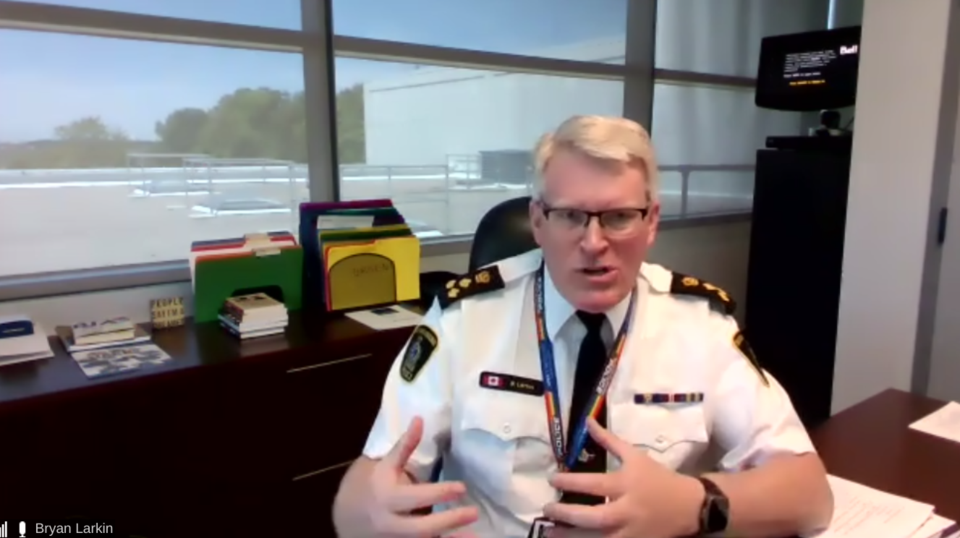The Waterloo Regional Police Service (WRPS) cyber crime unit has expanded its circle of investigation in relation to a Zoom-bombing incident that took place during a virtual vigil held by the Coalition of Muslim Women of Kitchener-Waterloo.
"We continue to investigate the Zoom bombing incident that happened during the recent vigil," said police chief Bryan Larkin, updating the police services board at a recent meeting. "Many politicians and board members and members of the service were on the call when we saw the very concerning racist, Islamophobic and homophobic comments that came in."
He said there are a number of investigative leads that the unit is pursuing.
"But the complexity of this takes us beyond the boundaries of Waterloo Region," said Larkin. "We're working provincially, nationally, and internationally to follow up on all the leads."
He also talked about the recent modernization programs that have been implemented at WRPS since the 1987 introduction of the mobile data terminals in police cruisers.
"We have rolled out body-worn video and in-car cameras in our north division in the traffic service units," Larkin said. "We've rolled out more than 270 smartphones to all frontline patrol officers. This is our largest modernization project as we look at enhancing the efficacy of our frontline and the work they do."
Tied in with the smartphone rollout is the divergent app, he added.
"We are piloting it on behalf of the Ministry of the Attorney General and Ministry of the Solicitor General in the Waterloo Region," Larkin said. "It allows our members, who come into contact with those that are better served in an alternative fashion, to work collaboratively with the John Howard Society, so that we don't have to arrest and charge the individual. We can divert and do it with a smartphone without moving the individual through the justice system, which we know can cause harm and create challenges."
Along with his update was a brief shared by Kate Richardson, director of administrative support with the Waterloo Regional Police Service (WRPS), who talked about the WRPS race-based data collection strategy.
She said the proposals from academics around Canada are being accepted until June 18, after a panel will be convened to assess the submissions to determine the most suitable candidate. The partnership will last for up to a period of 24 months, Richardson added.
The work, she said, will be governed by the data standards for identification and monitoring of systemic racism developed by the Ministry of Solicitor General to ensures compliance with other laws, such as the Municipal Freedom of Information and Protection of Privacy Act.
Richardson said the call was sent out to a large number of academics that have worked in policing and race-based and social identity data.
"We're also encouraging partnerships among multiple academics and focusing on parts of their proposal that explain how they're going to engage with our community and stakeholder organizations and the police service," she added.



